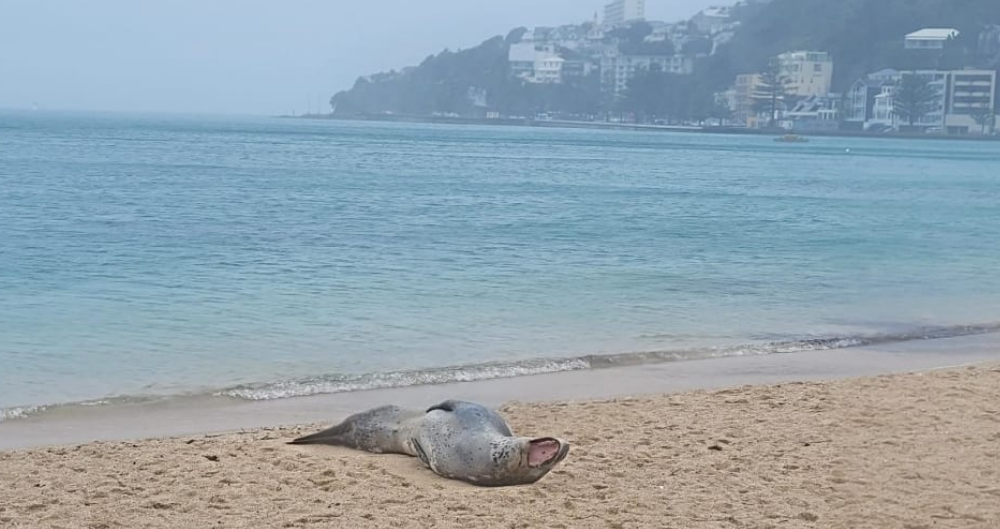
Wellington boasts some pretty cosy spots for seals to shelter away from chilly southerlies. Perhaps that, and the recent storms, are what led to three unusual visits.
A rarely spotted leopard seal was found bathing in the rain at Freyberg Beach on the capital's Oriental Parade yesterday, hours after a fur seal pup was found cuddling up between the train tracks in Ngauranga, which disrupted at least one train.
Department of Conservation (DOC) marine reserve ranger Tony Milner also said an elated resident in the Lower Hutt suburb of Eastbourne woke up to a seal pup on his doorstep in the weekend.
"We're into day four of a good old decent Wellington southerly, so like all of us they're all sheltering away from the storm," Milner said.
"Because we've got our own colony in Wellington, it's not uncommon for seals to haul out, particularly this time of year.
"This is what we call silly seal season, it's the winter haul-out for the last few months and the pups have been weaned, and so interactions with members of the public are much greater, we're ... looking at about 10 - 12 calls a week from various seal interactions."
KiwiRail do a good job of keeping an eye out for seals on the rail corridor, Milner said.
"In this particular occasion, I deputised the KiwiRail man and he went and picked up the seal and put it somewhere safe and secure and out of the storm."
Leopard seals however, are more problematic to relocate - "they've got a big set of teeth, and a rather large jaw, and they have been known to eat other seals and also there is one occasion where they've attacked a human.
"So we've got a cordon around [it], some posts and tape and signage to warn people to stay well away, particularly from the bitey end."
Milner said the colony at Red Rocks on Wellington's south coast had been expanding during the last 10 months, and now more were popping up at other locations during the haul out.
"It's really heartening the population's doing so well."
It is forbidden to get closer than 20 metres to a seal in the wild - for people and their pets.
DOC "takes a 'hands off' approach to seals", its website says. People were warned not to try to handle them themselves.
"They are capable and resilient and given time and space, they usually find their way home. Don't feed seals, as they can become reliant on humans for food.
"Seals are wild animals and will defend themselves if they feel threatened. Adult seals can move surprisingly quickly on land. While they can look harmless, seals can inflict serious injuries to dogs or people and can carry infectious diseases."

“I walked up and put my coat over it, then scooped it up and put it in the back of the truck.”
Once the pup was safely stowed away Waihi-Davies drove it to a quiet area of shrubbery and let it go.
“There was nothing wrong with him, it just waddled away.”

The kekeno was resting after travelling up the seawall stairs, across the road then up the footpath and driveway to nap on the porch.
Milner told the Herald the seal population on the South Coast is growing and as a result seals are showing up in more and more places.
For most of these cases, he said there is no cause for concern.
“If they’re just lying there being a seal, there’s no need to worry 90 per cent of the time. We do nothing about it.”
“They’re not helpless, they’re way more on to it than human babies that’s for sure.”
However, he warned that people should not be fooled by their adorable appearance.
“You have to be very cautious. They have a decent bite and they will bite you even though they’re very cute – plus they carry disease.”
He said people tend to “put human emotion” onto the seals – possibly because of how cute they are.
“People say they’re sad, or they’re hungry but they’re quite robust animals. They’re used to being in a cold and wet environment, so most of the time we leave them be.”
• Anyone concerned about a seal can call DOC on 0800 DOC HOT (0800 362 468).
- RNZ and NZ Herald












